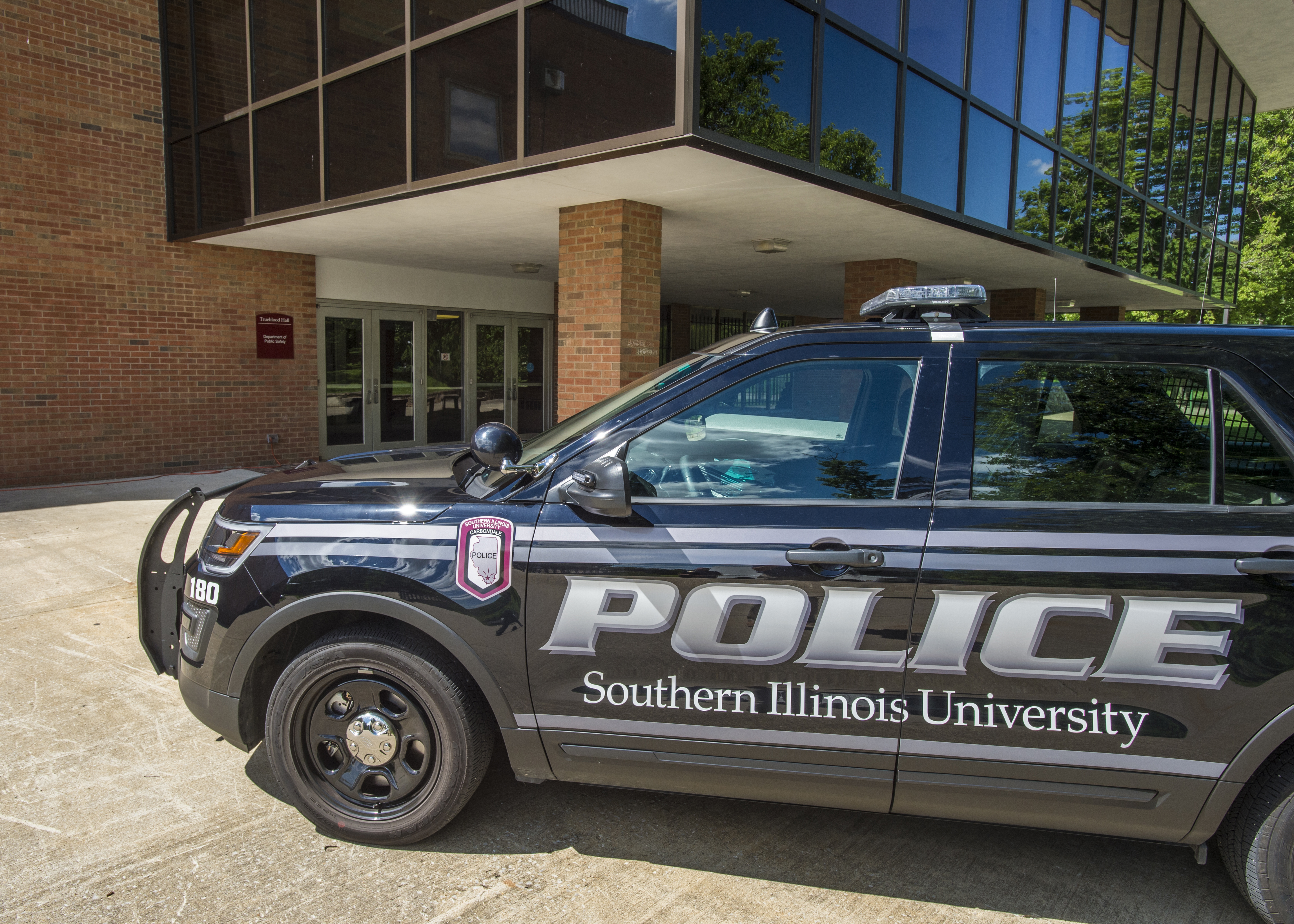
January 25, 2018
SIU police earn significant law enforcement accreditation
CARBONDALE, Ill. — Southern Illinois University Carbondale’s Department of Public Safety has earned its first accreditation from the Illinois Law Enforcement Accreditation Program (ILEAP).
Benjamin Newman, the university’s public safety director, was notified of the three-year, Tier II accreditation earlier this week. This highest accreditation level requires compliance with 180 law enforcement standards. Accreditation is not based on department size but how comprehensive a department is in complying with standards. Those standards provide “an effective community service model,” he said.
“Becoming accredited is a significant accomplishment,” Newman said. “The accreditation process covers nearly every aspect of law enforcement operations. We are one of a few in Illinois that are currently accredited through ILEAP.”
SIU Chancellor Carlo Montemagno said accreditation shows that the university is dedicated to campus safety.
“Our Department of Public Safety focuses on education and prevention as well as responsiveness,” Montemagno said. “Students, families, visitors and staff can be confident that we meet high standards in order to provide a safe and secure environment for learning, working and engaging in campus life.”
One of just 25 in the state accredited
SIU Carbondale is now one of 25 police agencies in the state to earn ILEAP accreditation and just the fourth public or private university in the state to do so. The Carbondale Police Department is also an accredited Tier II ILEAP agency.
SIU police has 37 sworn police officers, 16 non-sworn full-time personnel and 12 student workers.
Accreditation process began in 2015
The department started the process to meet formal, recognized professionalism in policing standards in August 2015 by enrolling in ILEAP, Newman said. The program provides Illinois policing agencies the direction for developing “comprehensive written directives and a foundation for producing sound management principles” and is a “professionalism benchmark” for law enforcement agencies in the state, he said.
The department already operated within many of the standards before joining the program, Newman said. Department personnel “worked diligently” to determine compliance with ILEAP standards and revise processes and procedures where room for innovation existed, he said.
In November 2017, two ILEAP assessors visited for an on-site assessment of policies, procedures and practices, reviewing files, conducting interviews and examining various aspects of agency operations, Newman said.
